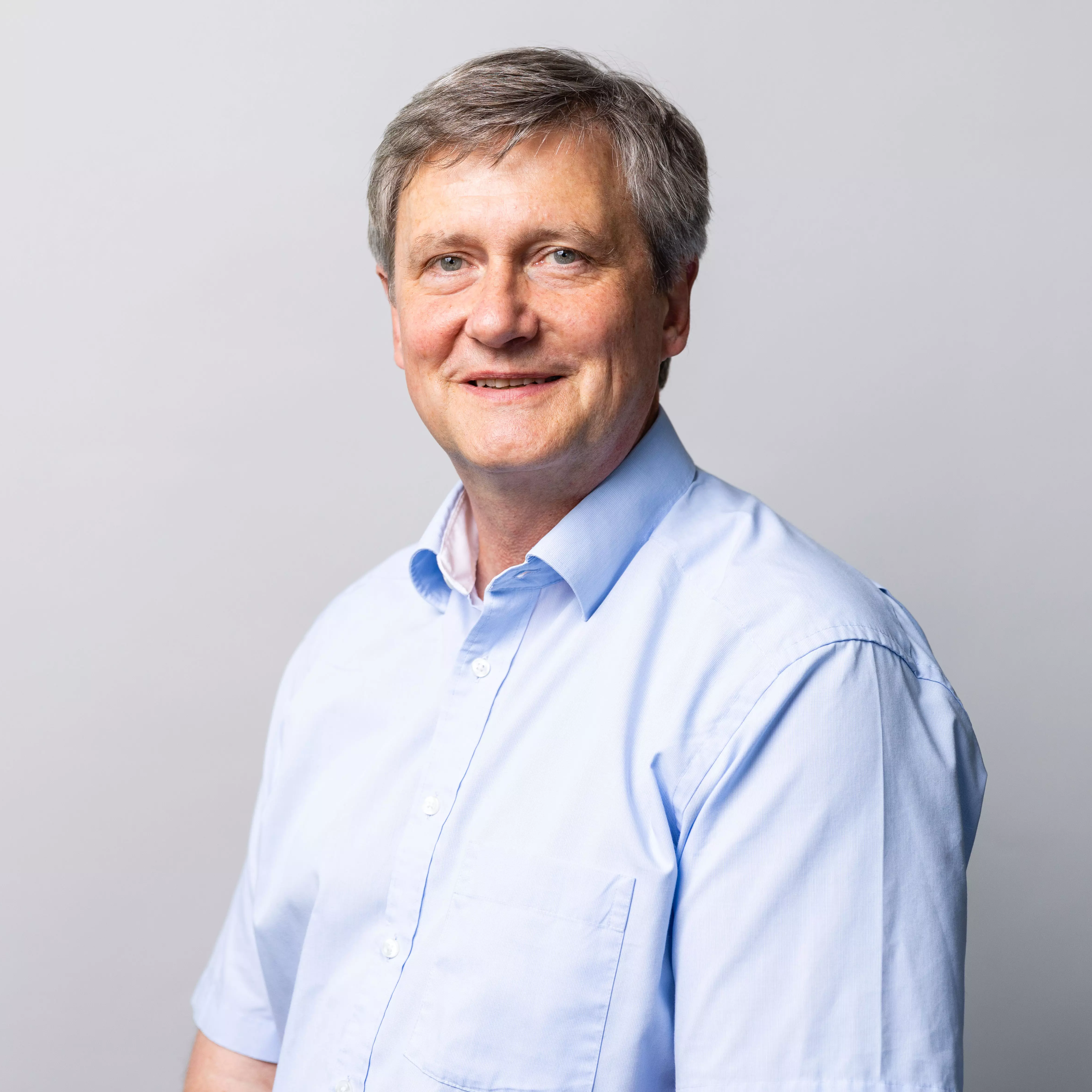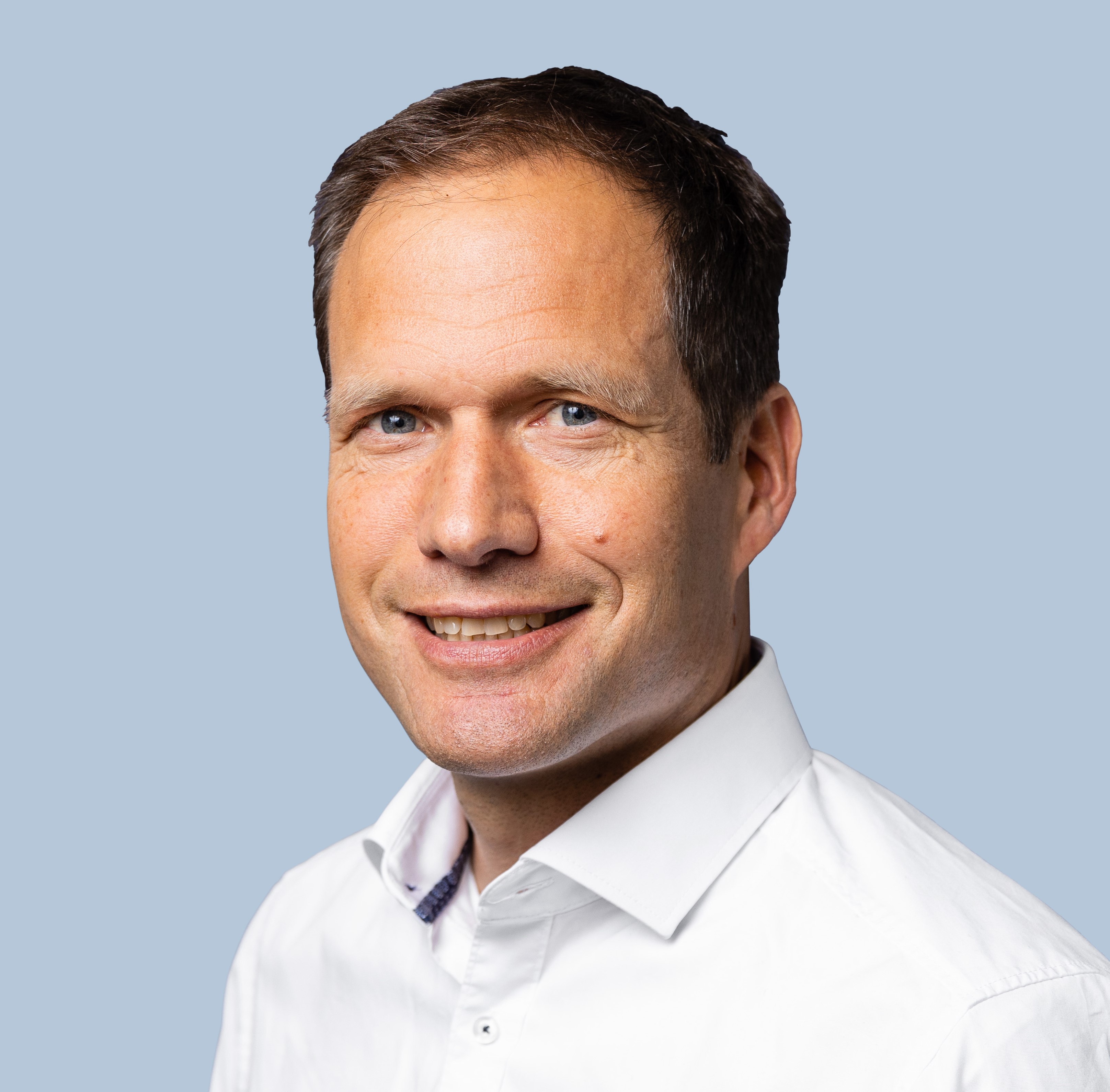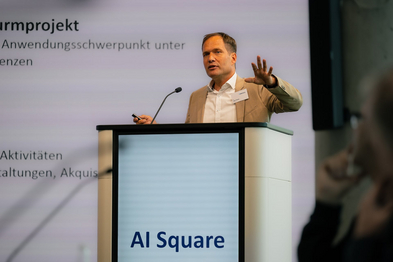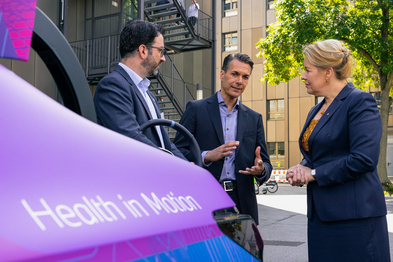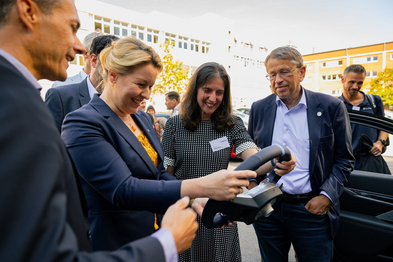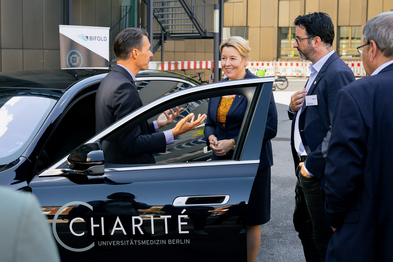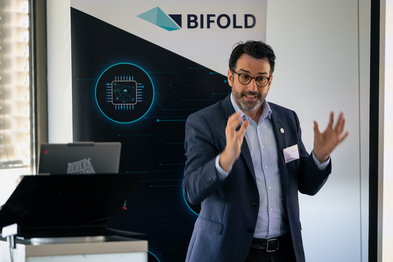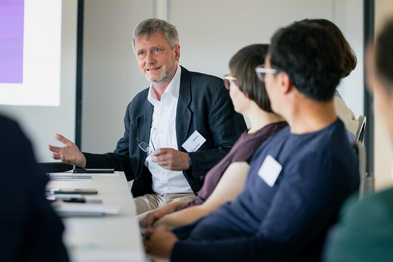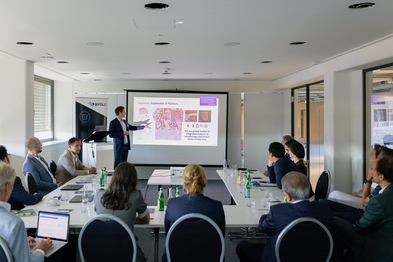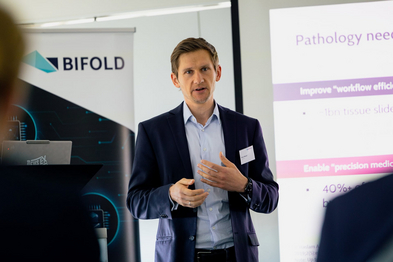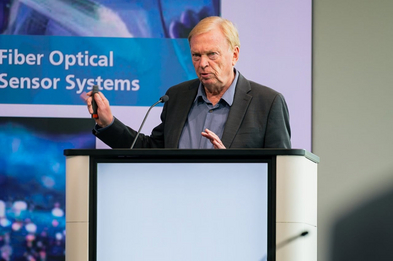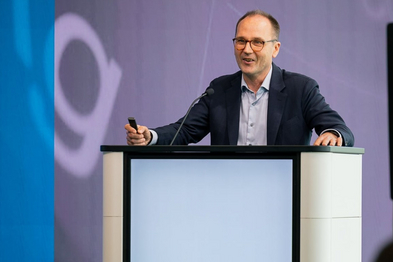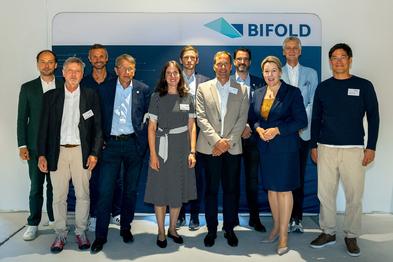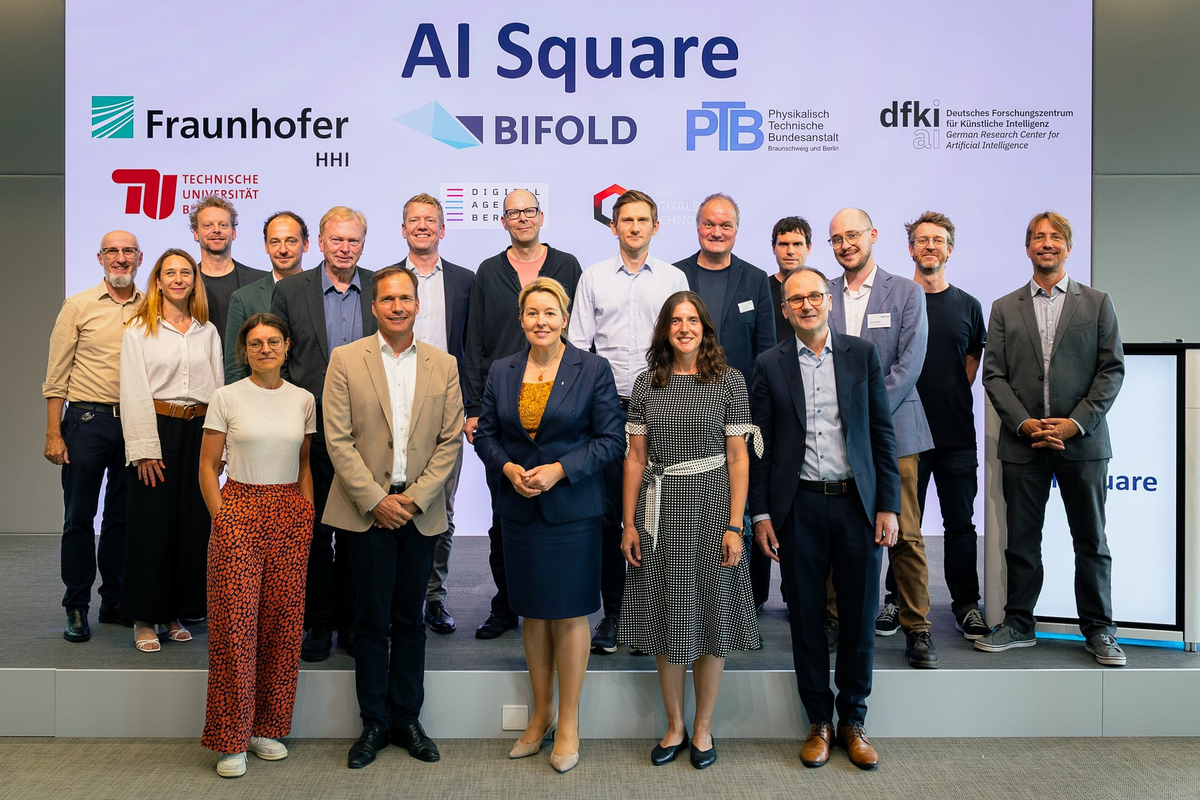
Berlin’s Senator for Economic Affairs Franziska Giffey at the Berlin AI Square in Charlottenburg
As part of her annual summer tour, Berlin’s Senator for Economic Affairs, Energy and Public Enterprises Franziska Giffey visited the Berlin Institute for the Foundations of Learning and Data (BIFOLD) at TU Berlin on September 3, 2025, to learn about the institute’s development and, in particular, its successful collaborations with Berlin’s business community. BIFOLD Co-Director Prof. Dr. Klaus-Robert Müller took the opportunity to present the senator with the institute’s key research areas and achievements, and introduced her to several BIFOLD spin-offs as well as industry partners from Berlin. The second part of the visit focused on “Berlin AI Square” at Salzufer: with BIFOLD, DFKI, Fraunhofer HHI, PTB, TU Berlin and other AI research institutions, this site is becoming a highly concentrated and mutually complementary cluster of cutting-edge AI research—closely linked to technology transfer initiatives that support spin-offs and the many AI companies that have already set up operations in Berlin. “In Berlin, the strength, diversity, and international reputation of AI research contribute directly to the city’s innovation capacity and competitiveness,” said Senator Giffey.
Since 2022, BIFOLD has grown from 87 staff members to nearly 240, including 92 doctoral researchers. In the same period, five new professorships were established (four at TU Berlin, one at Charité – Universitätsmedizin Berlin), with three more planned for 2026 (two at TU Berlin, one at Charité). “Back in the 2010s, our lectures rarely had more than 60 students. Today, up to 1000 students attend one of over 50 courses taught by BIFOLD researchers,” explained Müller. “BIFOLD plays a vital role in training the urgently needed AI experts for Germany, and especially for Berlin’s job market.”
The significance of a strong research ecosystem for industry investment was also highlighted by representatives from Snowflake and Databricks, two major U.S. tech companies that recently opened Berlin offices. BIFOLD could also point to successful spin-offs. Two examples present at the event were Aignostics and X-Cardiac. Aignostics focuses on advancing digital pathology for research, clinical trials, companion diagnostics, and routine care. Newsweek named it one of the “World’s Best Digital Health Companies 2024.” X-Cardiac, founded by Charité professor and BIFOLD group leader Prof. Dr. Alexander Meyer, is pioneering AI-based medical devices that predict postoperative complications after cardiac surgery. The demonstrators on display made clear that BIFOLD’s research is far from “ivory tower science.” Its AI solutions not only set new standards in patient safety but are also attracting interest from the automotive sector, as evidenced by a new collaboration with Charité and BMW on the AI-driven analysis of vital signs.
Berlin AI Square
The second part of the visit took place at the Forum Digitale Technologien, a networking platform run by DFKI, Fraunhofer HHI, and VDI/VDE. Here, the efficiency of Berlin’s complementary AI research groups working together was particularly evident. The strong innovation cluster at Berlin AI Square, including but not limited to BIFOLD, TU Berlin, Fraunhofer HHI, DFKI, PTB, and partners such as K.I.E.Z. and Talentik (AI Grid), showcased the results of its collaborations with demonstrators in AI quality and safety, AI in medicine, AI in media, and AI in earth observation—all areas in which Berlin has built a strong reputation in recent years.
Fraunhofer HHI presented how neural networks can be made transparent using Layer-wise Relevance Propagation (LRP), a key contribution to trustworthy AI in sensitive domains such as medicine and industry. This was complemented by AI systems capable not only of capturing data but also of interpreting and communicating its meaning, essential for autonomous vehicles and smart sensors. “Our AI research combines scientific depth with practical relevance, whether in medicine, industry, or digital communication,” said Dr. Ralf Schäfer, deputy director of Fraunhofer HHI.
“DFKI’s application-oriented research plays a key role in transferring AI into Berlin’s business community. Our work lays the foundation for successful spin-offs and strengthens both SMEs and large corporations. The DFKI spin-off Gretchen AI, which we present here, is an excellent example,” added Prof. Dr. Sebastian Möller, spokesperson for the DFKI Project Office Berlin.
Prof. Dr. Tobias Schäffter, head of PTB’s Berlin Institute, emphasized: “In collaborative projects with research centers and industry, we ensure reliable data and AI quality. This is a fundamental prerequisite for trustworthy AI systems in industrial manufacturing, medical technology, and autonomous driving.”
All research institutions involved are located just a few hundred meters apart, forming the core of Berlin AI Square. This proximity ensures that talent and technology can connect faster and that innovations move directly into applications. Their close collaboration covers the full AI innovation pipeline: From training highly qualified experts, via technology transfer, to new company formation and strengthening Berlin as an innovation hub.
Senator Giffey was impressed by the strong culture of technology transfer and collaboration between research, funding, and business that defines the Berlin AI Square and that not only advances individual projects but shapes Berlin’s economic development as a whole. “Excellent research is the foundation for economic success. A look at leading AI hubs such as the San Francisco Bay Area, Toronto, London, or Boston shows this clearly. In Berlin, too, the strength, diversity, and international reputation of AI research directly fuel the city’s innovative capacity and competitiveness. Artificial intelligence is a cross-cutting technology and a key driver of future industries such as FinTech, BioTech, GreenTech, and GovTech which is why it plays a central role in our innovation strategy. As Berlin’s Senator for Economic Affairs, I will particularly support testbed environments and high-performance computing infrastructure as essential foundations for AI innovation,” said Franziska Giffey.


